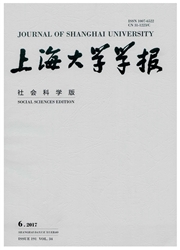

 中文摘要:
中文摘要:
通过对巴丢、哈特与奈格里关于爱和政治的论述进行批判性考察,可以发现巴丢对两个人之间的浪漫爱的论述并不能为共产主义政治奠定基础,相反会消解政治;而哈特和奈格里对诸众爱的论述因为缺乏敌人的视野而成为一种无力的政治。通过施米特和墨菲重新引入“敌友区分”问题,将敌与友的生成过程展现为一种巴特勒式的政治表演,并将爱理解为相互影响和感染的情感,可提出一种纳入敌人视角的表演之爱,真正激活爱和政治之间的链接。
 英文摘要:
英文摘要:
Through a critical examination of Alain Badiou, Michael Hardt and Antonio Negri' s arguments about love and politics, the paper holds that Badiou' s arguments about romantic love can not lay the foundation for communist politics, but dissolve politics, and Hardt and Negri' s arguments about multitudinous love reveal feeble politics because of its lack of the perspective of the enemy. By reintroducing Carl Schmitt and Chantal Mouffe' s "friend/enemy distinction", the paper presents the generation of friends and enemies as a Bulterian political performance and love as mutually influencing and infective affects, thus proposing a performative love which adds a friend/enemy dimension so as to truly activate the link between love and politics.
 同期刊论文项目
同期刊论文项目
 同项目期刊论文
同项目期刊论文
 期刊信息
期刊信息
